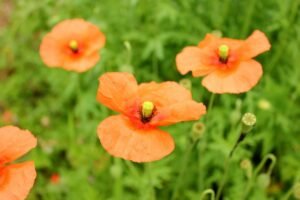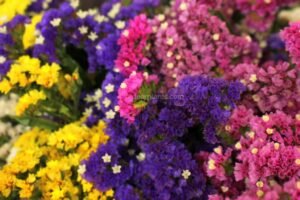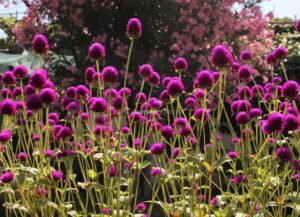Yellow rattle (Rhinanthus minor) is a plant in the annuals and biennials category that can grow 10cm – 50cm tall and up to 10cm wide. In this growing guide we’ll learn the cultivation details and how to plant Yellow rattle (Rhinanthus minor).
This plant has several common names including: yellow rattle, corn rattle, hay rattle, penny grass or rattle grass.
This is a deciduous plant that takes 1-2 years to reach full maturity.
In this article
Plant profile
Common name: yellow rattle, corn rattle, hay rattle, penny grass, rattle grass
Scientific name: Rhinanthus minor
Plant type: Annual / Biennial
Habit: Columnar / Upright
Height: 10cm – 50cm
Spread: Up to 10cm
Foliage: Deciduous
Sunlight: Full Sun
Soil: Chalk, Clay, Loam, Sand
Moisture: Moist but well drained, Well drained
Garden type: Wildflower meadow
Planting type: Low Maintenance
Seasonal colors
| Season | Stem | Foliage | Flower | Fruit |
|---|---|---|---|---|
| Spring | ||||
| Summer | ||||
| Autumn | ||||
| Winter |

How to plant Yellow rattle (Rhinanthus minor) – image source
Annuals and biennials are ideal for formal or informal flower beds, but also for growing in pots and containers of all kinds. They are important plants for their rapid growth, instant color and relatively low cost.
They are also useful plants for filling spaces between newly planted trees and shrubs, as well as in perennial beds that may need to be revived after the first spring bloom.
They are an important ingredient in country house gardens and wildflower meadows.
[yarpp template=”yarpp-template-genus” require_tax='{“genus”: 1}’]
How to plant
In this section we will learn how to plant Yellow rattle (Rhinanthus minor), know its needs in terms of soil, watering and sun exposure.
Soil
Yellow rattle (Rhinanthus minor) is a plant that adapts to all types of soils, chalk, clay, loam or sand.
-
The chalky soil is pale and contains chunks of calcium-rich rock. It is a fertile and well-draining soil, almost always alkaline.
-
Clay soil is composed of more than 25 percent clay particles. These particles have a high moisture holding capacity and the soil is heavy to dig and can be waterlogged in winter (dry in summer).
-
The loam soil is dark, rich in organic matter but balanced in minerals. It offers the best of all worlds, retaining enough water for the plants, but allowing excess moisture to drain away. This is the most desired type of garden soil, perfect for most plants.
-
Sandy soil is light, porous and very easy to drain. It is a soil poor in organic matter and nutrients. It is composed of relatively large mineral particles that allow water to drain quickly.
It is not very sensitive to soil acidity or alkalinity and grows well in soils with pH acid, alkaline or neutral.
Regarding drainage, Rhinanthus minor likes to grow in moist but well drained or well drained soils.
Sunlight
Yellow rattle (Rhinanthus minor) should be grown in full sun places.

Cultivation profiles – Growing Yellow rattle (Rhinanthus minor) – AnRo0002, CC0, via Wikimedia Commons




Where can I buy Rhinanthus Minor “Yellow rattle” seeds. I ordered some from the UK but the US Postal Service confiscated them. Is there somewhere in the US to buy them?